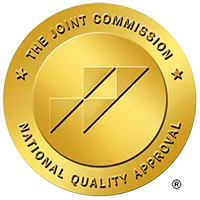Defining Resilience
Resilience is an important life skill, not only in recovery but in life. Throughout your life, you have heard the following saying in one form or another:
You need to grow a backbone.
Life isn’t fair… toughen up.
Pick your yourself up and dust yourself off.
These sayings may be done to death, but their truths are obvious. What is resilience and what do resilient people possess? Writer Diane Coutu defines resilience as the following:
Resilient people possess three characteristics — a staunch acceptance of reality; a deep belief, often buttressed by strongly held values, that life is meaningful; and an uncanny ability to improvise. You can bounce back from hardship with just one or two of these qualities, but you will only be truly resilient with all three. Resilient people face reality with staunchness, make meaning of hardship instead of crying out in despair, and improvise solutions from thin air. Others do not.
In order to build strength in sobriety and in your day to day life, you need to face obstacles head on and at face value. When there seems to be no way out, you find a way. When the going gets tough in working your program, your resilience in recovery will give you the motivation to break through.
Great Ways to Build Resilience In Recovery
No matter how long you have clean and sober, life has a way of bringing unexpected surprises. While they can be unpleasant and stressful, these bumps in the road can be more easily managed if you have strength in reserve. The following are some excellent ways that you can cultivate resilience in your recovery.
Learn to See The Positive
If you desire to increase resilience in your life, you first must train yourself to see all the good that is happening in your life. Being positive in your day-to-day routine if often easier said than done. Work, financial stress, family issues, health crises–these all can wear you down. It is easy to focus on the negative, but being consumed by negativity is bad for your physical and psychological health. Once bad juju overtakes your train of thought and being, all you will see and experience will reflect that mindset.
Train your brain and soul to look at what is positive–no matter how small. Start with the realization that you woke up sober and will go to bed sober. Think about the compliment of a job well done at work. Marvel at hearing your spouse or child say I love you. No matter how trivial, focusing on what goes right becomes contagious and you can gain strength from those experiences.
Engage in a “Gratitude Attitude”
An important part in building fortitude in recovery is adopting a attitude of gratitude. By definition, gratitude is an emotion in which an individual expresses thankfulness, gratefulness, or has a feeling or attitude of appreciation regarding a benefit they have received or are about to receive. When you adopt a strong sense of gratitude, you take stock of the positive in your life and you acknowledge the love and support of others. Ultimately, you learn the important lesson that you must love yourself before you can love others.
To cultivate gratitude, you can engage in the practice of journaling. Take a few minutes out of your day and write down everything that you are grateful for in your life. When you do so, you open up your mind to everything that you feel and see. If you do this everyday for a month, you will notice a significant change in how you view your world–and you become stronger for it.
Learn to Heal Yourself
Another awesome way to develop resilience in recovery is to learn simple methods of minimizing stressand promote healing. A couple of simple ways to calm yourself is to simply place your hand on your heart of one minute. Another simple exercise is to gently massage the base of your skull for thirty seconds. When you place your hand on your heart, you are calming the neurons that surround your heart. Skull messages help release a neurotransmitter called oxytocin which helps relieve stress. For extra effect, pair these simple healing exercises with pleasant and warm thoughts.
Go Outside the Box
Lastly, building resilience in recovery requires you to do things that may make you uncomfortable. As a species, human beings seem to be hardwired for routine and comfort. When that safety zone is compromised, it can feel like the world has turned upside. Resilience in recovery–and in life–only grows when you challenge yourself to do and experience things that you have never done before. Pick up a new hobby, go skydiving, become a sponsor–whatever you have to do to push yourself. You may not be successful in these new ventures, but the fear that you feel will diminish.
You Have the Power!
Not to go all He-Man on you, but in recovery you have the power to shape your life as you want. No matter how tough life can get, things already seem to work for the better if you draw upon your resilience in your recovery. When you are able to flex your muscles, negatives turn into positives and mistake become tools to make you stronger. Recovery is a never-ending journey, and you need all the strength you can muster to grow in your sobriety and as a person.
Original Article re-printed here with permission from SoberNation.com
Red Rock Recovery Center is a Colorado state licensed substance abuse extended care treatment program designed to help you or your loved one recover from the struggles associated with alcoholism and drug addiction. Located in Denver, Colorado we offer a safe haven for those afflicted by the ravages of untreated addiction. Our program is based on a compassionate 12-step model that applies behavioral as well as life skill therapies, which will enable our clients to heal and recover.
#recovery #drugrehab #redrockrecovery




